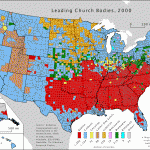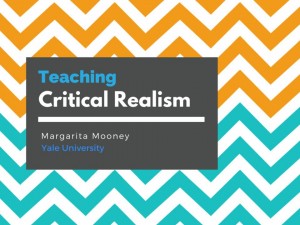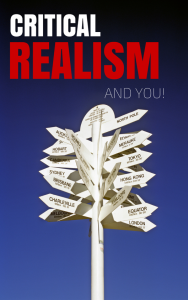 Part 4 in a series. Click here for my podcast interview on Pope Benedict XVI’s visit to Cuba, hosted by Research on Religion.
Part 4 in a series. Click here for my podcast interview on Pope Benedict XVI’s visit to Cuba, hosted by Research on Religion.
After watching Pope Benedict XVI’s March 2012 visit to Cuba, I have written a series of posts on Catholicism in Cuba, past and present. In this post, I explore what it means when the Cuban Conference of Catholic Bishops wrote in their 2006 Pastoral Plan that one major challenge they face is reversing the anthropological damage done by Communism.
One person I got to know very well in Cuba, Rodrigo, explained this concept to me through his personal experience as a pro-democracy political activist and a practicing Catholic and missionary. For Rodrigo, his political and religious conscience have long been intertwined. His parents were both Catholics and involved in politics. In fact, his mother fought in the guerilla forces against Fulgencio Bastista, but she defected from the movement when it became communist.
For Rodrigo, the Christian faith helps break the fear that the communist government tries to instill in people. As he spoke to me about his daily life, his work, his political activism, Rodrigo described the Cuban system as a “masked vigilance” and “intimidation.” Rodrigo told me of the many experiences he has had being stopped on the street and searched for counter-revolutionary material and the recent threats the government has made to evict him from his mother-in-law’s house because he has failed to register with the Committee for the Defense of the Revolution.
“They are telling me that I am illegal in my house because I won’t register with the Committee for the Defense of the Revolution. But why do I have to register with them? What they want is to make you afraid, they want you to know that they are watching you, they want you to know that they are controlling you. They have taken away about eight backpacks from me because I always walk around with a backpack and they think I am distributing counter-revolutionary material. They have called me down to the police station for questioning so many times, they have even told me they are ready to give me an eight-year prison sentence if they find me doing something they call illegal.”
Given the amount of pressure the government puts on people like Rodrigo and other political activists I spoke with, it is no wonder that so few people actively engage politics. “It’s very difficult to get over the fear, in part because nobody trusts anyone else. There are even spies in the church. But the best defense I have found is to show them [the government officials] you aren’t afraid of them.”
“Show” is the right word. As I talked to Rodrigo, I had no doubt that he does feel a tremendous amount of fear. Although his actions require much courage, he admits he feels great fear of going to jail. Other persons I have spoken to who are involved in politics in Cuba echoed Rodrigo’s words: they never stop feeling afraid, but once their conscience has been formed, they feel compelled to keep struggling against the system.
Another frustration of people like Rodrigo is that few other Cubans join political movements.
“For most people, it isn’t hard to awaken their conscience. They know this system is trash. Everything here is a farse, a lie. Everything here is hidden behind something else [enmasquerado]. People know that, but they don’t know how to respond.”
Rodrigo also spoke of awakening people’s conscience through religious instruction. Rodrigo’s parents brought him to church to be baptized as a child and they continued to attend church, although in secret, and his mother prayed at home. As his parents were both Catholics and political activists, he formed both his religious and political conscience early on in life. Although he has noted that greater evangelization efforts of the church and some openings to religious liberty have brought more people into the church, providing a deep and enduring Christian formation is not easy because catechists have to undo so much of what society has taught people.
“Education is Cuba is a political preparation,” Rodrigo explained. “The system here has robbed parents of their responsibility to educate their children. The education system tries to undermine Christian beliefs. This was more open earlier and now it is more hidden. But most people who come to church have been deformed by society. They don’t have a sense of the value of the human being, of individual liberty.”
Although it may be hard for an outside observer to understand, one of the common critiques of communism by those who have lived is that the people are taught that only the system, or in the case of Cuba the revolution, matters. Individual rights and freedoms are not protected, only the collective. Rodrigo admitted that most people who begin to go to church, even those that get baptized and receive other sacraments such as penance and communion, do not continue attending church. But for those who do continue past the basic instruction in the Bible and the sacraments, a church institute offers classes on human and civic formation.
“Although some people start attending church and still participate in communist organizations like the Committee for the Defense of the Revolution, to be a real believer in Cuba is hard. According to the government, the believer in Cuba is not a trustworthy person. In part this is because the believer knows that freedom is; the freedom of God doesn’t fit with the type of freedom they say we have in Cuba. When we talk to people in the civic formation classes, we ask people if they feel free. They often respond no because they can’t travel outside the country, they can’t express their opinions, they can’t choose how to participate in society.”
When Pope Benedict XVI mentioned the importance of marriage and family in every homily he gave in Cuba, I immediately thought of Rodrigo’s words. Rodrigo and many other Cubans asked me: How can one live the trust, intimacy and love required of marriage if society promotes selfishness, materialism, and untruthfulness? How can one be faithful to one’s spouse when the way to get ahead is society is through lying, spying and snitching? Rodrigo is happily married and struggling to raise his three children, barred from working for the government because he speaks his mind. But in raising his family, teaching the Catholic faith, and giving people civic and political formation, he is undoing the anthropological damage caused by Communism in Cuba.
My conversations with Rodrigo and Laura since Pope Benedict XVI’s visit have given me great hope for Cuba’s future. Keep in mind that when the Soviet Union broke apart in 1991, many people expected Cuba to quickly open up, just like most of the rest of the Communist world. But, more than 20 years later, Cubans only have taken baby steps towards greater freedoms. For the first time since I visited Cuba initially in 1994, I can sense that big changes are coming. As the Cuban people’s consciences are better formed, as the Cuban people have greater access to outside information and ideas, the tide of change can’t be stopped. Slowly but surely, truth and freedom will win out over intimidation and fear in the hearts of Cubans.












